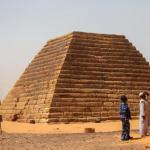STUDENTS OF CLASS 6 "A" AZOEV A., KOMINA R. O., KUSMARTSEVA A.
From our sociological survey we concluded that many of us do not know why they need geography.
³ 85% do not know where knowledge of geography is needed in ordinary professions
³ 70% do not know professions closely related to geography
³ 90% wanted to know
Therefore, the goal of our project was:
1. Find out where knowledge of geography is needed in ordinary professions
2. What professions are directly related to it.
Download:
Preview:
GKOU Volgograd sanatorium boarding school "Constellation"
Geography is the basis of many professions
COMPLETED:
STUDENTS OF CLASS 6 "A"
AZOEVA A., KOMINAR O., KUSMARTSEVA A.
SUPERVISOR:
RODINA MARINA VLADISLAVOVNA
From our sociological survey we concluded that many of us do not know why we need geography.
85% do not know where knowledge of geography is needed in ordinary professions
70% do not know professions closely related to geography
90% wanted to know
Therefore, the goal of our project was:
1. Find out where knowledge of geography is needed in ordinary professions
2. What professions are directly related to it.
After analyzing various sources of information, we discovered that a large number of professions are unthinkable without geographical knowledge. Here are some of them.
Doctor - Specialist in the prevention and treatment of diseases, preservation and promotion of human health. He needs to know about the influence of nature on public health and the geographic distribution of diseases.
Economist - A specialist in economic support of financial and economic activities, must have knowledge about the patterns of location of economic objects and the population.
Businessman - A person who has his own business in order to make a profit or other benefit; knowledge about nature, economics, and the characteristics of the population will help people in this profession develop their business with maximum benefit.
Builder is a construction specialist, he needs to have knowledge about rocks, seismicity, the location of groundwater, landslide processes in the areas where construction is being carried out.
Tour guide - excursion specialist , he must be able to read a map, navigate the area, know the features of nature, population, economy, and excursion locations.
Military - A specialist in the armed defense of the country, repelling an attack in the event of war, he needs knowledge about the nature, population, economy of strategic areas, their influence on the preparation and conduct of military operations. Ability to read and draw maps, know how to navigate the terrain.
A professional seaman who works or serves on a ship must know about the location of various geographical objects, winds, currents, climate, storms and tsunamis.
Diplomat – A specialist who carries out official diplomatic relations with foreign states, international organizations and their representatives. They need knowledge about the nature, population, and economy of the countries in which they work or negotiate.
Marketer - Specialist in selling goods. To succeed in his business, he must have knowledge of the geography of production and sale of goods. The logistician must create rational routes for moving goods.
There are other professions that are very closely related to geography:
Geologist, Geophysicist, Surveyor, Hydrologist, Volcanologist, Cartographer, Forester Meteorologist, Oceanologist, Geography teacher Ecologist.
Geography knowledge is very important in these professions! You can get them at the following educational institutions: Volgograd State University, Volgograd Pedagogical University, Moscow State University. Lomonosov, Polar Academy and others.
As a result of working on this project, we concluded that even the most ordinary professions require knowledge of geography. In general, without geography you are nowhere!
In my geography lessons at school, I especially enjoyed working with visual materials, one of which was boxes with mineral samples. I learned that the science of applied geology deals with the study of earth minerals. With its help, humanity will learn how to use the bowels of the Earth and its surface as best and more productively as possible.
Geology and its professions
This science was created as if in opposition to theology, which studies the laws of the structure of the spirit (theo - God). In the process of studying the planet, many derivative specialties were founded that study the lithosphere and surface of the Earth:
- Seismologists monitor the movement of lithospheric plates.
- Soil scientists - examine the thinnest top layer of the surface.
- Surveyors - measure the earth's surface.
- Volcanologists study lava emissions from the bowels of the Earth.

The daily work of these professionals helps humanity develop and live in more or less comfortable conditions. Volcanologists and seismologists will warn about the impending danger of earthquakes and eruptions, a soil scientist will show the best place for agricultural crops, and a surveyor can draw up an accurate map and make the necessary measurements for construction. Even cryptozoologists can be classified as geological professions, because they also study the remains of ancient people located in the ground.
Applied Geology
Graduates of this specialty were previously called mining engineers and were supposed to “know everything that happens underground.” They were the first oil drillers and created mines.

Unlike general geologists, who even study other planets, “applied scientists” are completely focused on turning the Earth’s riches into human favor. But applied geology is not only concerned with direct drilling and development of mines. With the development of high technologies, geomodeling received an impetus, i.e. construction of dynamic models showing deposits of raw materials. Also, with the help of such models, it is possible to predict the movement of lithospheric plates, recognizing the easiest places for drilling.
One of the poets said that all professions are important and all professions are needed. But professions related to the earth have always been and will be in demand and useful: geologists, miners, agronomists, ecologists, surveyors, builders. Let's look at them in more detail.
Professions related to the study of the lithosphere
Geologists and miners - romance with a risk to life (professions related to the study of the lithosphere) Geologists have always been associated with the romance of travel, life in tents. But this is only one side of the coin. The heroic work of people in this profession is the study of the composition of the earth, the lithosphere (hard shell of the Earth), the search for minerals, and their development.
Scientific work
Seismologists, scientists. Representatives of this profession are collected, responsible, observant, know how to work in a team, and are not afraid of extreme conditions.
Miners can rightfully be considered the bravest and most courageous people. After all, every million tons of coal mined costs approximately four human lives. It is the miners who have to work deep underground and risk their lives almost every time. One of the highest paid professions, one that develops endurance and requires good physical fitness, is also the most risky and dangerous.
The oldest professions on earth
Agronomist is rightfully one of the most widespread and most ancient. Already several thousand years ago, people knew how to cultivate the land and grow certain crops. It is impossible to imagine agriculture without this profession: agronomists not only grow crops, but also select new varieties of wheat, apple trees, and rapeseed that are so useful and necessary for humanity.
To some extent, construction professions can also be classified as professions related to land, since houses are built on the ground. It is also one of the oldest professions, which can safely be called the most peaceful. The secrets of the construction craft have been passed down from generation to generation, some, unfortunately, have been lost forever, but palaces built many centuries ago still stand.
The builder is always in good physical shape, resistant to stress, and knows how to finish what he starts. In addition, builders will be in demand at any time.
Taking care of the ground and a little about convex-concave surfaces
Ecologists make sure that the harm caused by humanity to the earth is minimal, they take care of environmental protection, and study flora and fauna in interaction with human activity.
A land cadastre specialist takes into account the quantity and quality of land, its fertility and location.
And the surveyor, who in Tsarist Russia was called a land surveyor, studies all the convexities and concavities of the earth’s surface in order to correctly design and arrange buildings.
Professions related to the earth and the study of the lithosphere are quite earthly, sometimes risky and difficult. But the one who chose these professions is truly always needed and important.
Most geography departments arose in the 60–80s. XIX century. The first independent geographical faculty in our country was the Faculty of Geography of Moscow State University. M. V. Lomonosov, opened in 1938
Demand
Payability
Competition
Entry barrier
Prospects
Currently in Russia there are 24 geographical faculties and departments of classical universities and 41 geographical faculties of pedagogical universities and institutes.
As a science, geography is divided into physical, which studies nature, and social, which studies population and economy. (It is customary to include the technical discipline of cartography as geography, although this has recently been disputed by some prominent scientists.) The two branches of a single geography consist of many narrower disciplines, each of which corresponds to one or another geographical specialty - there are about 50 of them in total. back at the turn of the 19th-20th centuries. traditional specialties, most of them: geomorphology, geosciences, climatology, etc. And there are relatively recently appeared ones: bioclimatology, tourism geography or geographic planetology.
There are geographical specialties that are closest to nature. They can be called office-field. A geographer’s stay outside the walls of his home can last from one day to several months a year (mainly in the warm season). And the group of socio-geographical (according to the old terminology - economic-geographical) specialties is not so strongly tied to the natural environment, for the most part it is purely desk-based. When traveling, economic geographers prefer not expeditions, but single research trips. The object of research of such a specialist is the anthropogenic environment (created by man).
Study methods
In geography, the methods of exact and natural sciences are widely applicable: mathematics, statistics, physics (there is even a permanent debate about whether the departments of meteorology and oceanology should be transferred from the Faculty of Geography of Moscow State University to the Faculty of Physics), chemistry and biology.
And geographical specialties from the social geography block are especially closely related to a number of humanities disciplines.
Representatives of all geographical specialties without exception must have a high level of knowledge of computer and information technologies.
Geomorphology
 The unofficial name of this science is engineering geography. She studies the history of the Earth's topography. The branch of geomorphology is paleogeography - the reconstruction of the prehistoric relief of the Earth. The most promising areas in geomorphology are space geomorphology (the study of the relief of the planets of the solar system) and aesthetic geomorphology (the creation of artificial landscapes).
The unofficial name of this science is engineering geography. She studies the history of the Earth's topography. The branch of geomorphology is paleogeography - the reconstruction of the prehistoric relief of the Earth. The most promising areas in geomorphology are space geomorphology (the study of the relief of the planets of the solar system) and aesthetic geomorphology (the creation of artificial landscapes).
Geomorphology is a monetary specialty. Professionals participate in the design of settlements, roads, airports and seaports, dams, reservoirs, parks, beaches, oil and gas pipelines (including on the seabed), and work in geological teams. This is one of the most male-dominated geographical specialties. Much attention is paid to the physical training of the geomorphologist.
Labor market: research institutes, manufacturing firms, various geological exploration services, engineering design organizations.
Biogeography
Biogeography studies the flora and fauna of the Earth. Promising directions are environmental geography and medical geography (the study of the sources of occurrence and ways of spreading various diseases and their vectors). Biogeographers can be found in national parks and reserves, in arboretums; As part of expeditions, they look for wild plants and animals that are promising for domestication, and choose environmentally friendly places for the construction of new settlements (including country houses for the elite).
TV presenters Nikolai Drozdov (at one time an environmental expert under the UN Secretary-General) and Ivan Zatevakhin both graduated from the Department of Biogeography of the Faculty of Geography of Moscow State University.
Glaciology and cryolithology
Both sciences study the ice sphere of the Earth: glaciology - on the earth's surface (glaciers and snow cover), cryolithology - under the earth's surface (permafrost and seasonal permafrost). Promising directions - Antarctica as one of the future places on Earth for mining, the ice cover of Antarctica and Greenland as laboratories of the ancient climates of the Earth (mysterious Lake Vostok), oil and gas basins, communications and settlements in the permafrost zone in northern Russia, the impact of global warming to the polar regions of the Earth, the “ice planet” is Titan.
Glaciology is currently in a boom phase. World and “not so” powers, despite the international treaty of 1959, are ready to get involved in the struggle for the last undivided continent on Earth - Antarctica. In Antarctica, the number of scientific stations is increasing, with their research preparing the basis for contenders for the Earth’s ice shell.
 These are the most male-dominated majors in geography: almost 100% of graduates are representatives of the stronger sex. Accordingly, students will need to intensively engage in sports (especially alpine skiing, swimming and mountaineering), gain skills in speleology, learn to drive all-terrain vehicles and snowmobiles, and drill ice and soil.
These are the most male-dominated majors in geography: almost 100% of graduates are representatives of the stronger sex. Accordingly, students will need to intensively engage in sports (especially alpine skiing, swimming and mountaineering), gain skills in speleology, learn to drive all-terrain vehicles and snowmobiles, and drill ice and soil.
The “domains” of glaciologists and cryolithologists in the Far North of Russia are extensive. They are interested in the cover glaciers of the islands of the Arctic Ocean and permafrost on the mainland in the areas of large cities, oil and gas pipelines, railways and roads. They monitor the Northern Sea Route. On the glaciers of the Caucasus, Urals, Altai, Kamchatka and other mountain systems, glaciologists monitor and predict the movement of ice, snow avalanches and mudflows. And the most prepared, seasoned and courageous specialists go for romance and the opportunity to make good money at Antarctic research stations.
Labor market: relevant research institutes, permafrost stations in the North of Russia, avalanche and mudflow stations in the mountains, State Committee for Hydrometeorology, State Committee for Ecology, Hydrometeorological Center of the Russian Federation.
Meteorology and climatology
Promising areas here are paleoclimatology (ancient climates of the Earth), biometeorology (the impact of climatic conditions on living organisms, Chizhevsky’s solar activity cycles), medical climatology (the life and economic activities of people in different climatic zones of the Earth), weather forecasts based on satellite meteorology, military meteorology (development of so-called climate weapons), planetary meteorology (study of the atmospheres of Venus, Mars, Jupiter, Saturn and their satellites), problems of global warming and ozone holes on Earth, computer modeling of climate processes.
Specialists need to have a good knowledge of physics, mathematics and computer science - at the specialized department of the Faculty of Geography of Moscow State University, physics and mathematics are paid no less attention than geography itself!
Labor market: the bulk of meteorologists-climatologists - and often women - work as weather forecasters at ground-based weather stations scattered throughout Russia. In the last 15 years, the number of these stations has decreased, especially in the Far North and Far East. The equipment installed back in Soviet times is morally and technically worn out, so our weather forecasters analyze mainly foreign (American and European) information.
Other possible places of employment are the Hydrometeorological Center of the Russian Federation, State Committee for Hydrometeorology, Institute of Geography of the Russian Academy of Sciences, Meteorological Bureau of Moscow and other large cities of Russia, weather services at airports and seaports, research institutes, marine weather stations, scientific oceanographic vessels, cosmodromes.
There may be jobs for meteorologists-climatologists in a number of international structures.
Landscape science
This is a geography classic. It is here that they deal not with just one aspect of nature or human society, one natural or anthropogenic component, but with the entire set of connections between different components of one natural or anthropogenic complex (landscape), starting from the smallest (river, pond, park, forest, meadow) , mountain, settlement, field) and ending with the geographical envelope of the Earth. The task of a landscape scientist is not only to describe this or that landscape of the Earth, but also to find out the history of its origin and give a forecast of its further development, taking into account the influence of many factors. And here you need to know the basics of almost all other geographical sciences.
Promising directions - geophysics and geochemistry of the landscape (the influence of physical and chemical processes on the formation and dynamics of a particular territory), ethnocultural landscape studies (how different cultures and human settlements influenced different landscapes of the Earth and how nature influenced the mentality of different peoples), environmental assessment terrain, aerospace sensing methods in landscape science, construction of artificial aesthetic landscapes (parks, etc.).
 Landscape scientists are perhaps the most mobile people among geographers; After all, the subject of study for them is the entire surface of the Earth! Hence - numerous trips to different regions of Russia, and with good knowledge of a foreign language - abroad. Our landscape scientists can be found in the jungles of Africa and the Amazon, in the Indian savanna, Australian deserts, the prairies of North America, on the coral islands of the Pacific Ocean, in the industrial areas of Western Europe and Japan, in the taiga and tundra regions of Eurasia, in the Cordillera and Tibet. The Russian landscape school, founded in the 19th century by V.V. Dokuchaev, is considered the strongest in the world.
Landscape scientists are perhaps the most mobile people among geographers; After all, the subject of study for them is the entire surface of the Earth! Hence - numerous trips to different regions of Russia, and with good knowledge of a foreign language - abroad. Our landscape scientists can be found in the jungles of Africa and the Amazon, in the Indian savanna, Australian deserts, the prairies of North America, on the coral islands of the Pacific Ocean, in the industrial areas of Western Europe and Japan, in the taiga and tundra regions of Eurasia, in the Cordillera and Tibet. The Russian landscape school, founded in the 19th century by V.V. Dokuchaev, is considered the strongest in the world.
Labor market: research institutes, public and private firms engaged in environmental design and expertise, the State Committee for Nature, nature protection committees of the constituent entities of the Russian Federation, natural science museums, botanical gardens, nature reserves and national parks, urban planning organizations and architectural and artistic workshops (design of aesthetic landscapes ). Our landscape scientists are eagerly invited to work in France and Germany.
Speleology
This is a frontier science at the intersection of geology and physical geography. She studies the internal cavities of the earth's crust (formation, dynamics, current state), in a simpler sense - the study of caves.
Speleology can be studied in different ways: in relation to the rocks and minerals that make up the walls of caves (geological speleology); microclimate of caves (climatic speleology); living organisms present in caves (biospeleonology); hydrological regime of caves (hydrospeleonology); traces of material culture in caves (archaeological speleology); modern use of caves (anthropospeleonology); cave mapping (topographic speleology). Sports and tourist speleology stand apart: some geographical faculties have corresponding clubs. The most interesting and promising direction in speleology is underwater speleology (studies cavities in the topography of the bottom of seas and oceans).
Speleology is for strong romantics. Try climbing caves without physical training and theoretical knowledge!
The scope of work for speleologists is wide: expedition teams, topographic and geodetic surveys of the internal cavities of the Earth, fulfilling orders from the military and special services regarding the suitability of certain caves as sites where military-industrial complex enterprises and secret facilities could be located.
City halls of large cities attract speleologists to study the underground urban environment, where there are many voids of both natural (karst) and anthropogenic origin (mined out adits, bunkers, foundations of ancient buildings, rivers hidden in pipes, underground warehouses and communications).
Speleologists can also work as instructors in sports and tourism organizations that specialize in organizing routes to different caves.
Oceanology
 The old name for oceanology is oceanography. And it would be more correct to call planet Earth Water or Ocean, because since school we know that most of the Earth’s surface is covered with water (the World Ocean).
The old name for oceanology is oceanography. And it would be more correct to call planet Earth Water or Ocean, because since school we know that most of the Earth’s surface is covered with water (the World Ocean).
Oceanology includes ocean physics (it is interested in the interaction of the ocean and the atmosphere, acoustics, optics, radioactivity and the electromagnetic field of sea water), ocean chemistry (salinity, chemical composition of water), ocean geology (what rocks and minerals make up the seabed and seamounts) , minerals); ocean biology (study of aquatic fauna and flora, including identification of habitats of organisms of food importance); topography of the ocean floor (underwater relief mapping).
The program for oceanographers includes a lot of mathematics, physics and chemistry. After the 2nd year, students go on practical training to a marine station or research vessel to conduct research. You will not only take a free ride on the seas and oceans and enjoy the beauty of the sea and the places where the ship will moor, but you will also harden yourself, turning into a real “sea wolf”. And if you're lucky, you'll find yourself on board the bathyscaphe!
And oceanology itself is a promising geographical science. The planets of the solar system are better studied than the depths of the oceans. And oceanographers and submariners are deservedly compared to astronauts. Even a new term has arisen - aquanauts.
Labor market: various hydrographic services, research institutes, underwater and coastal laboratories, marine hydrological and biological stations, oceanographic vessels, private diving training companies, travel agencies.
With a high level of professionalism and good knowledge of English, Russian oceanographers can try to work in oceanographic institutes in the USA, Canada, Great Britain, France, Germany, Japan and in the Mecca of all oceanographers on Earth - the Oceanographic Museum of Monaco, created by Master Cousteau.
Land hydrology
In the 21st century, fresh water has become such a valuable resource that military conflicts between countries even occur over the possession of its sources and projects are being developed to deliver icebergs to the arid regions of the Earth. People who have chosen terrestrial hydrology as their profession are called upon to optimize and rationalize the water flows and water balance of the country.
Hydrologists study the water cycle in nature and the influence of human economic activity on it; analyze the regime of water bodies and the water regime of individual territories; provide an assessment and forecast of the state and rational use of water resources; participate in the design and monitoring of reservoirs, hydroelectric power stations, canals, irrigation structures, sea dams, river dams and bridges, ports, beaches, water intakes for settlements and enterprises; compile catalogs of water bodies on land.
Hydrology is closely related to physical geography, physics (hydrodynamics), mathematics, biology, chemistry, ichthyology, hydraulic engineering and navigation.
A promising direction for Russian hydrologists is the study of the future ocean: Lake Baikal, the deepest on Earth.
Labor market: research institutes, lake and river stations, hydrological posts and hydroobservatories, hydroelectric power stations, water transport department of the Ministry of Transport of the Russian Federation, fish breeding companies, water parks, river canal departments, river ports, Hydrometeorological Center of the Russian Federation, Ministry of Emergency Situations of the Russian Federation.
TV presenter A. Belyaev received his education as a hydrologist at the Faculty of Geography of Moscow State University.
Soil science
The world's largest tracts of the most fertile soil lie in our country. And it is not for nothing that soil science appeared in Russia. It is a biological and geographical science about the origin, dynamics, current state, future development of soil and the rational use of soil resources. There are also departments of soil science in biology departments, but in geography departments they are mainly engaged in spatial analysis of soils, their mapping, quantitative and qualitative assessment of soil resources in different territories for entering this data into the Unified Land Cadastre of the Russian Federation.
Soil geographers study the geography of soils, their morphology and genesis, geochemistry, colloid chemistry and biogeochemistry, mapping, physical and biological chemistry, biology, hydrology and hydrogeology!
Graduates solve problems in agriculture of increasing soil fertility and using the necessary fertilizers, participate in land reclamation (irrigation, drainage, gypsum, soil liming) and in the fight against soil erosion, and draw up maps of soil and land resources for agronomic farms. A good soil scientist is the right hand of the manager of an agricultural enterprise. The role of the soil geographer has especially increased now that large-scale land reform is being carried out and the services of people in this profession are needed to assess soil and land resources and, accordingly, to compile a Unified catalog of all agricultural enterprises and a Unified Land Register, which in turn is needed to determine the land tax rate for different regions of Russia.
Political geography
 This is a section of human geography that studies the distribution of political forces in different countries, or in a particular country, or in part of this country. Its tasks include analyzing interethnic relations in different territories; identification of factors (purely political, military, economic, cultural, ethnic, mental-psychological and even natural) influencing the territorial distribution of political forces, phenomena and processes; comprehensive analysis and detailed assessment of the political situation in the country and the world; participation in the construction and editing of political maps and directories; recommendations to government agencies and politicians, assistance in the development of political science schemes, technologies and political and military-political doctrines of the state. (The branch of political geography that deals with various aspects of election campaigns is called electoral geography.)
This is a section of human geography that studies the distribution of political forces in different countries, or in a particular country, or in part of this country. Its tasks include analyzing interethnic relations in different territories; identification of factors (purely political, military, economic, cultural, ethnic, mental-psychological and even natural) influencing the territorial distribution of political forces, phenomena and processes; comprehensive analysis and detailed assessment of the political situation in the country and the world; participation in the construction and editing of political maps and directories; recommendations to government agencies and politicians, assistance in the development of political science schemes, technologies and political and military-political doctrines of the state. (The branch of political geography that deals with various aspects of election campaigns is called electoral geography.)
Political geography is studied together with socio-economic geography, since these two areas are closely interrelated. Graduates receive a diploma in geographer-political science. They have studied political science, regional studies, regional studies, economics of different countries, psychology and culture of different peoples, and, of course, foreign languages - at least two.
Often in the media, political geography is confused with geopolitics. But the subject of geopolitics research is the whole world, all countries in their interaction, in particular the processes of globalization. And in political geography, as a rule, specific territories are considered - more often at the level of a single country or some region within this country. And geopoliticians may not be geographers at all, but representatives of other spheres of human activity (politicians themselves, heads of great states, foreign ministers, diplomats, military officers, philosophers). But among the famous professional political geographers we can mention the scientists - L. Smirnyagin, S. Blagovolin, D. Oreshkin.
Political geographers may work primarily as analysts and experts.
Economic and social geography
Economic geography is one of the branches of human geography. It studies the spatial distribution of productive forces (population and economy) and is located at the intersection of geography and economics. And social geography lies in the plane of interaction between general geography and a number of humanities disciplines - history, ethnology, sociology, cultural studies, even psychology (studies the mentality of the population of a particular territory).
Economic geographers consider the natural resource and economic potential of a territory (from a locality to the country as a whole); identify specific features and problems of the territory; assess the value of land; looking for the optimal location for the construction of national economic facilities; give recommendations for government and economic structures on the integrated development and solution of problems of the territory; determine the degree of environmental risk in the process of economic development of the territory; give a forecast for the development of the territory. The entrepreneurial climate of an object determined in this way is important for future investments in this object.
Sociogeographers participate in assessing the labor and intellectual potential of a territory; study the lifestyle, traditions, customs, behavior (mentality) of different groups of the population, social classes and ethnic groups; collect and systematize information about migrants; give government agencies recommendations on the optimal distribution of migration flows of the population; help in settling refugees; analyze population censuses; take part in ethnographic expeditions; help plan settlements and recreation areas; identify national problems and provide advice on how to resolve them; participate in determining the human development index (quality of life of the population).
Both economic and sociogeographers participate in the zoning of a large territory: in accordance with certain criteria and on the basis of certain indicators, they divide this territory into component parts (districts, regions, zones, areas). The zoning process can be carried out either according to one indicator or according to their combination. For example, the territory of a country can be zoned according to the quality of life of the population or the degree of investment attractiveness (a lot of initial information and several indicators are taken). But you can use only one indicator - for example, the provision of cars per 1000 people. The results of economic and sociogeographical research are presented in various forms - from memos to computer presentations. But in any case, a map is attached to the report - so the specialist needs to have a good knowledge of the cartographic method.
I will list promising directions in economic geography. This is the geography of globalization processes, transnational companies, foreign economic relations, the financial sector, the fuel and energy complex, innovation and scientific and technological progress. And in the field of social geography, this is cultural geography, psychological geography (so-called phenomenology), geography of social groups of the population, quality of life, small nations, human ecology.
Economic and sociogeographers mainly work in economic and financial structures - both public and private. For example, banks willingly hire highly qualified economic geographers who can think broadly and comprehensively and see the problem as a whole. Such people also make good marketers (work in commercial and industrial companies). In government agencies, economic geographers are needed primarily as regional planners and evaluators of territorial potential.
Here is an approximate labor market for economic and sociogeographers: work in research institutes, teaching economic geography in economic, financial and tourism universities, in high schools and colleges. Also, their place of work can be cartographic factories (editors of socio-economic maps), planning, land and socio-cultural departments of federal, regional and local authorities.
Professions related to geography are distinguished by their diversity. You can master them in various educational institutions. Right now in the Russian Federation, students are studying at 24 faculties with a geographical focus. These are just university departments. In addition, there are 41 geographical departments of pedagogical institutes.
All this means that professions that require knowledge of the designated science are in demand, and there are not as few of them as it might seem.
What are the specialties in this area?
Not all professions are listed below in the text, but the most relevant and in demand of them in our time are touched upon. So the list looks like this:
- biogeography;
- landscape science;
- land hydrology;
- soil science.
Based on this list, you can form an opinion about what profession a student studying at the Faculty of Geography needs.
Biogeography
It implies the study of the fauna and flora of the entire Earth. In biogeography, two more promising “branches” can be distinguished: medical geography, as well as the ecological direction of the subject. In turn, the first involves studying the centers of spread of various diseases, and, most importantly, their primary sources. Also, the medical industry does not ignore hotbeds of disease.
If we define the area where biogeographers work, then their workplace most often becomes various reserves, parks and arboretums. The most common activity of these people is the search for wild animals and various kinds of plants for their further domestication. They are also hired to select the most favorable places for the future construction of cities and other settlements.
Landscape science is a classic specialty for all people who want to study geography. Representatives of this field of science deal with all factors that in one way or another relate to the subject, analyze the relationship of all natural components: from the smallest elements (forest, park, meadow, river, field, pond) to the largest of them - the geographical envelopes of the planet.
People in this profession have the goal of learning absolutely the entire history of a particular landscape. They need to try to predict the development of the soil, not forgetting to include in their field of view a huge number of various factors. Concurrently, landscape scientists should understand not just one area of geography, but absolutely all scientific fields, even biology.
Of course, this profession is divided into various areas, among which the most popular are:
- geochemistry;
- geophysics;
- ethnocultural landscape studies;
- environmental assessment of the territory;
Experts in geochemistry study various chemical processes that in one way or another affect the soil of a certain area. In turn, geophysics analyzes physical phenomena. Ethnocultural landscape science studies how people and plants influence the soil and, by extension, how the land influences them.

It is important to note that the profession requires mobility from people, because the field of study of its workers is the entire globe. Most often, of course, they can be observed on the territory of Russia, but knowledge of a foreign language allows you to go on business trips around the world. It is noteworthy that the Russian school of landscape design is known throughout the world as the best. And it was founded back in the nineteenth century by the famous geographer Dokuchaev.
Land hydrology
Unfortunately, in the twenty-first century, humanity is faced with a huge shortage of fresh water. It gets to the point where entire wars are broken out between individual states over its possession. Currently, a project is even being developed that involves various ways of transporting glaciers from the poles to the arid places of the Earth. It is people who have chosen the profession of “Terrestrial Hydrology” who undertake to rationalize the balance of water throughout the world, thereby providing fresh liquid to all corners of the planet.
Ever since school, everyone has heard about the water cycle in nature. This is precisely the phenomenon that hydrologists study. They also touch upon the influence of man himself on this cycle and analyze various regimes of water flows in various places. In addition, hydrologists try to forecast and assess the optimal consumption of all resources and are directly involved in projects for the construction of canals, reservoirs, dams, dams, hydroelectric power stations and even beaches.
If the question arises, which branch of geography is best to delve into in order to study land hydrology, then it is worth asking:
- biology;
- ichthyology.
- hydraulic engineering;
- chemistry.
Lake Baikal is also considered by hydrologists to be a promising object for research. Based on some forecasts, it will become a real ocean in the future.

Soil science first began to emerge in Russia. This is due to the fact that it is here that the largest tracts of the most fertile land in the whole world are located. This science includes knowledge not only of geography, but also of biology. She is engaged in the objective use of land resources, studying:
- dynamics;
- origin;
- development;
- soil condition.
Soil science is taught not only in the departments of geography, but also in biological areas. But people who finished first spend additional time:
- spatial analyses;
- soil assessments;
- mapping.
All notes of these specialists are entered directly into the databases of the Unified Land Cadastre of the Russian Federation.

The task of soil scientists is to study such phenomena as:
- soil geography;
- geochemistry;
- biogeochemistry;
- hydrology;
- genesis;
- hydrogeology.
Indeed, there are a lot of professions related to geography. Based on the descriptions of this or that specialty, you can form your own point of view on the question of which one people need most now.




















